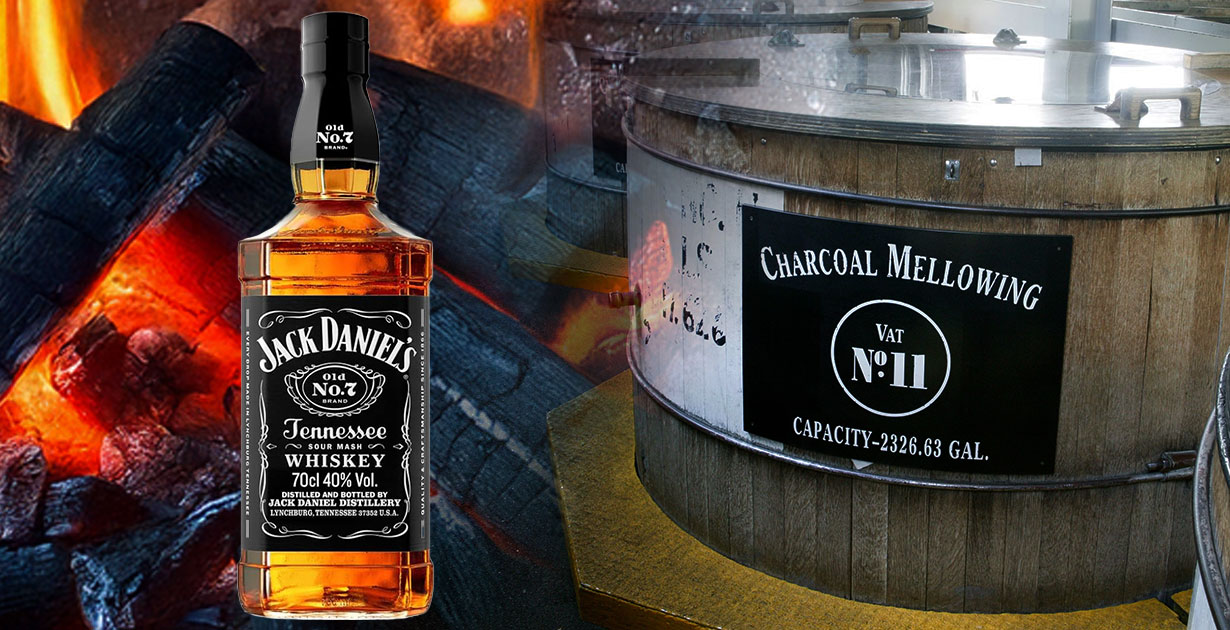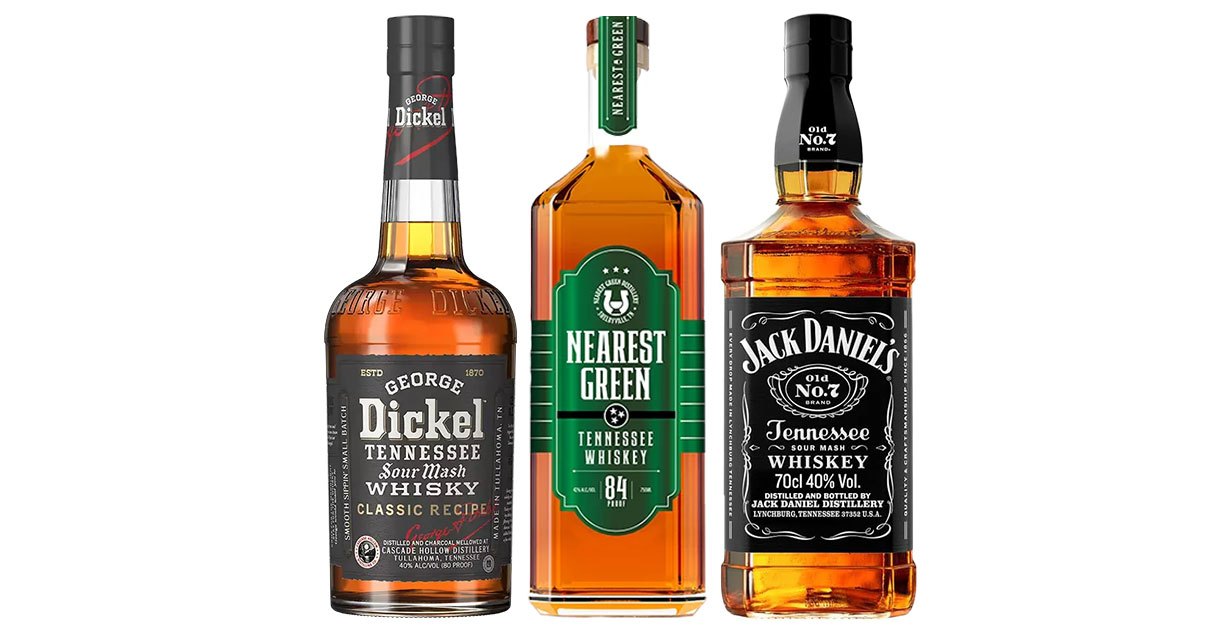


If you’ve ever sipped Jack Daniel’s and wondered why it’s so smooth, you can thank the Lincoln County Process. This nearly 200-year-old technique – also known as charcoal mellowing – involves filtering fresh whiskey through sugar maple charcoal before it goes into the barrel. It’s a defining step that turns bourbon made in Tennessee into Tennessee Whiskey, and it’s practiced by almost every distillery in the state.
In this article, I will discuss the origins of the practice, its use in Tennessee whiskey today, and how it impacts the flavor and mouthfeel of your favorite whiskeys.
What Is The Lincoln County Process?
The Lincoln County Process is a charcoal filtering method used on unaged whiskey before it’s put in barrels. Distillers burn sugar maple wood to make charcoal, then pack it into deep vats. The fresh whiskey slowly drips through the charcoal, after which the whiskey goes into the barrel as usual.
What Effect Does This Have On The Whiskey?
The Lincoln County Process doesn’t add anything to the whiskey – the charcoal itself doesn’t impart flavor or sweetness. Instead, it removes undesirable elements. As Jack Daniel’s Master Distiller Chris Fletcher explained to Distiller.com, “It’s important to note that the charcoal doesn’t impart any flavor… The main flavor impact is the reduction of oily mouthfeel and grainy—mostly corn—flavor.”
In other words, charcoal mellowing takes off some rough edges (harsh oils and sulfur compounds) resulting in a smoother, gentler spirit. By the time it comes out of the charcoal vats – clear as water, before barreling – the whiskey has been “mellowed” without losing its character.
The Origins Of The Lincoln County Process
The origins of the Lincoln County Process are unclear, but the idea of using charcoal to purify liquids goes back centuries. In early 1800s Tennessee, distillers began experimenting with filtering unaged whiskey through charcoal to make it smoother. By the mid-1800s, the method was widely used across the state.
Some say Alfred Eaton first used the process around 1825 in Lincoln County. Others point to Nathan “Nearest” Green, the enslaved distiller who taught Jack Daniel, as the person who put the technique into practice at Jack Daniel’s Distillery. There’s also a possibility that knowledge of charcoal filtering came from West African traditions, brought to America by enslaved people.


Over time, the method became a hallmark of Tennessee whiskey. Jack Daniel’s leaned heavily into the process, especially after Prohibition, when fewer distilleries were still using it. In the 1950s, they rebranded the old charcoal “leaching” method as the “Lincoln County Process,” linking it to their roots in Lincoln County (even though the distillery is now in Moore County). Today, Jack Daniel’s remains the most famous example of this traditional technique.
Jack Daniel’s & Charcoal Mellowing
No distillery is more closely linked to the Lincoln County Process than Jack Daniel’s. Since the 1800s, every drop of their whiskey has been charcoal mellowed—a technique Jack learned from Nearest Green and insisted on doing properly, with fresh sugar maple charcoal and plenty of it. This helped give Jack Daniel’s its famously smooth character, setting it apart from bourbon.
In the 1950s, under Lem Motlow’s leadership, the distillery began calling this step the “Lincoln County Process” and used it to define what made Tennessee whiskey unique. “Charcoal mellowed” became central to their branding and helped Jack Daniel’s Old No. 7 become the world’s best-selling American whiskey.
For decades, Jack Daniel’s was the face of Tennessee whiskey and played a key role in keeping the Lincoln County Process alive. As new distilleries emerged, JD’s influence meant that most people associated Tennessee whiskey with charcoal filtration. Eventually, the distillery even helped make it a legal requirement—ensuring that the Lincoln County Process became part of Tennessee whiskey’s official definition.
The Legal Definition
In 2013, Tennessee passed a law (House Bill 1084) requiring that any whiskey labeled “Tennessee Whiskey” must be “filtered through maple charcoal prior to aging”—making the Lincoln County Process mandatory. The only exception is Prichard’s, a small distillery grandfathered in due to its traditional method. Distillers can customize how they apply the process, but charcoal mellowing is now central to what defines Tennessee whiskey.


Essentially, Tennessee whiskey meets all of the requirements of bourbon, but adds the mellowing as an additional step, making Tennessee whiskey a distinct product.
Despite legal definitions, the argument remains over whether or not Tennessee whiskeys such as Jack Daniel’s can be called ‘bourbon’, with different parties interpreting the rules differently (as is explained here). That said, it’s important to note that Jack Daniel’s, along with many other Tennessee whiskey producers, actively avoid the term ‘bourbon’. Ultimately, the use of the Lincoln County Process has historically set Tennessee whiskey apart, both in production and in the eyes of consumers.
Mellowed Drop-By-Drop
The Lincoln County Process is what makes Tennessee whiskey different—an old tradition that adds a smooth, distinctive character. Whether you’re sipping Jack Daniel’s, George Dickel, or another Tennessee whiskey (except Prichard’s), you’re tasting a spirit shaped by history, craft, and regional pride. It’s more than bourbon—it’s whiskey mellowed drop by drop, and that’s something worth toasting.







